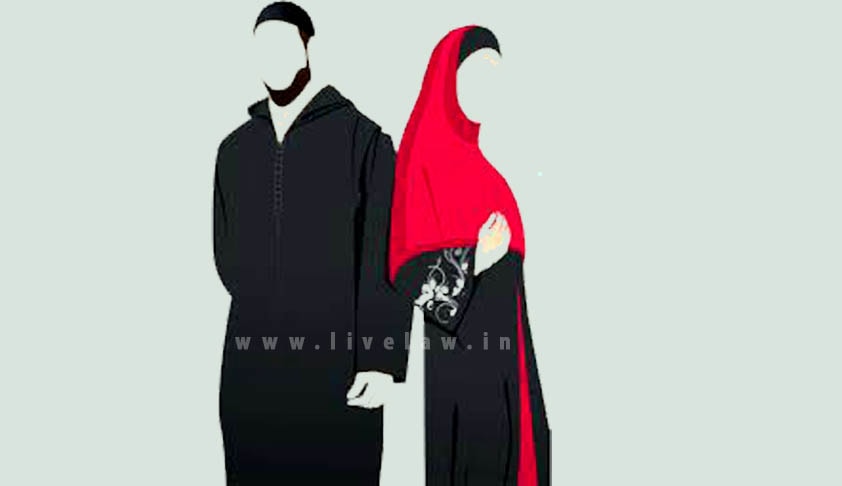Muslim Personal Laws And Its Nuances
Dr.Yogesh Pratap Singh & Dr.Afroz Alam
9 Sept 2016 11:34 AM IST

The present discourse is distinguished by the infamous politics of ‘Muslim Personal Laws’ and arcane resistance to the possibility of common code by the All India Muslim Personal Law Board (AIMPLB) through an affidavit submitted to the Supreme Court of India. In the cacophony of the debate the most strident question has been side-lined as whether or not Muslim personal law is a codified law that deals with the personal matters like marriage, divorce, inheritance, maintenance, adoption and polygamy in clause by clause manner. Given the conspicuous absence of uniform and codified Islamic law, the very question of Muslim Personal law appears a chimera and thus indefensible.
All India Muslim Personal Law Board
The legitimacy of AIMPLBto speak on behalf of Muslims as a whole is doubtful. Formed as late as 1973, the AIMPLB that sits in judgment of Indian Muslim law is astonishingly neither a government body nor a community representative. There are a much nuanced differences in the principle and practices of Shia or four schools of Sunni jurisprudence (Hanafi, Maliki, Shafi and Hanbali) and their sub-sects like Wahabi, Ahl-e-Hadith, Deoband, Barelvi but also the cultural pattern of each of these categories do not match with what is stated as Islamic by AIMPLB. Similarly, these laws are being constantly reworked in familial domain to bypass the so called Islamic laws and thus giving primacy to the internal dynamics of kinship, caste, class and gender. The heterogeneous character of the Muslim community bars them to have unitary interests when it comes to personal laws. As a result, the submissions of AIMPLB on Talaq, Polygamy and status of women cannot be treated as authoritative and final.Supreme Court must make it clear that, this private, unrepresentative body with such an erratic confidence will not dictate to legislature, executive, judiciary and Muslim community as an authentic authority on Muslim law.
Political Nuances
All laws including Personal Laws or UCC are political contraptions. Ironically, despite having the plethora of personal laws in India, it is only Muslim Personal Law which has always been made the subject of political exploitation.In fact, the very submissions are political in character which ultimately will endinfomenting the communal passions of the people and will eventually benefit the right-wing political parties to spike their conservative agenda. The whole debate revolves around personal laws versus civil code without bothering about whose rights are represented in either of these two alternatives and who should speak for change on behalf of whom. It is often argued, and rightly so in certain context, that male privileges are strongly entrenched under the rational of Islamic sanction which is not self-evident.
No body raises the question whether Islamic sanctions are Quranic in character or only the interpretative outcome of those humans who commands Islamic jurisprudence and thus raises the possibility of narrow or broad interpretations based on their preferred selection, exclusion and silences. In this regard, wemust note that most of the Muslim personal laws outlined by different schools of jurisprudence were not Quranic but were developed through human judicial reasoning (Ijtihad). Second, the existing Muslim Personal Law in India is the by-product of colonial master plan of Warren Hasting in 1972 which promised that with respect to “inheritance, marriage, caste and other religious usages, or institutions, the laws of Koran with respect to Mohametans, and those of the Shaster with respect to the Gentoos, shall be invariably adhered to.” British replaced the Islamic law pertaining to criminal matters with Indian Penal Code 1860, Criminal Procedure Code 1899 andIndian Evidence Act 1872 without any significant opposition.
A.A.A. Fyzee, a noted scholar of Islamic jurisprudence while discoursing on Shari’at Application Act 1937stated that the so called Muslim law in India is not a law of divine command but a piece of legislative enactment by the British. He in fact insisted upon reform in the existing Muslim personal laws to remove the gender anomalies and argued that Muslim Personal Law cannot be considered as Sharia because Islam is not the state religion, judges are not Muslims and there is no caliph to enforce Sharia.
We need to deconstruct the submissions of AIMPLB claiming Triple -Talaq is legal and Islamic and cannot be disclaimed. Is it Quranic, the Prophetic, some Caliphs or the opinion of certain Islamic jurist? If there is anything clearly stated in Quran, then all other authoritative sources appear meaningless. And Quran clearly states that divorce is a process which is procedurally spread over at least three months. Divorce is not about the momentary utterance of the word Talaq three times in one go and that too without witnesses. Likewise, is the case with Polygamy. In the Quran, polygamy is predicated upon the welfare of orphans but consciously removed in Sharia as a necessary condition without prescribing the reason. The most important part is the subjectivity of fair treatment to all wives which is difficult to measure and therefore having multiple wives was denied impliedly.
Legislative Competence
Article 246 and entry 5 of the Concurrent List gives power to the Legislatures to pass laws regulating personal law. In addition, Article 25(2) too empowers State to make laws providing for social welfare and reform and if the State does that, it would not be a proper to challenge that the measure of social welfare and reform impinges upon the religious freedom of any section of the citizens of India. Religion in a modern democratic State is purely a matter of the individual and his God; with the religious beliefs of the citizen and his religious practices normally the State would not interfere. But if these religious practices conflict with matters of social reform or welfare on which the State wants to legislate, such religious beliefs or practices must yield to the higher requirements of social welfare and reform.Vote-seeking governments perhaps would not venture these reforms.
Judicial Scrutiny
Article 13(1) provides that all pre-constitution laws, so far as they are inconsistent with the Part III, shall, to the extent of inconsistency, be void. Whether expression "all laws in force" or “law”appearing in Article 13(1) include personal laws?If yes, then personal laws would be amenable to writ jurisdiction.It is made copiously clear that these are an inclusive and not an exhaustive definition; therefore, at first blush it appears that "all laws in force," would include personal laws because they were laws which were in force in the territory of India.The institution of polygamy offends Article 15(1) inasmuch as a Muslim male is permitted to have more than one wife whereas a Muslim woman is restricted to one husband. Similarly, institution of triple-talaq goes against the basic tenet of the non-discrimination and human dignity clause.Let us assume that it is not included within the definition of law or laws in force, Article 25 (1) makes these religious practices of Muslim Personal Law subservient to all other fundamental rights, morality and health.It is opportunity for the Court to venture the reformative process howsoever hard it may be.
Conclusion
We are constantly moving forward in post-colonial secular India and thus the resistance to pressing reforms in personal laws appear meaningless. A common, modern and secular Special Marriage Act of 1954 has already given all Muslim couples the option to register their marriage under Act. Similarly, Muslim Women (Protection of Rights on Divorce) Act 1986 empowered criminal courts to enforce some of the rights generally available to divorced women under the Islamic law. There is a need of reforms within personal laws to reconcile with gender justice norms of civil code without disturbing the broader framework of Islam and at a time when the political climate of the country is more conducive than counter-productive. The most radical and progressive law of Islam of past cannot be a regressive law for today. Reform is certainly needed, but what would be the nature of reform? The problem lies in not only the non-codification of Muslim Personal laws but also the absence of officially recognised Sharia Court which ultimately result into the administration of personal laws cases by the State courts based on the Indo-Muslim judicial precedents which often produces constitutional and humanitarian crises. Is UCC the magic alternative? The answer is purely dependent upon whose interests would be represented in the new UCC. We don’t think that UCC will be the sole solution. The extreme, barrier against the concern of equity across gender is not solely the personal laws but the cultural preferences and pressures of and on the women to follow customary rules without questioning the marital decisions, unilateral Talaq, property disentitlement, polygamous inequity and temporal maintenance in the court of law. Bernard Shaw has rightly described that: “A man defends his marriage because he is really defending his pleasure. The woman is more vehement on the same side because she is defending her only means of livelihood. To a woman without a property or marketable talent, a husband is more necessary than a master to a dog.”
 Dr.YogeshPratap Singh is a Deputy Registrar in Supreme Court of India
Dr.YogeshPratap Singh is a Deputy Registrar in Supreme Court of India and Dr.Afroz Alam is an Associate Professor & Head,Department of Political Science Maulana Azad National Urdu University (MANUU), Hyderabad.
and Dr.Afroz Alam is an Associate Professor & Head,Department of Political Science Maulana Azad National Urdu University (MANUU), Hyderabad.
The Article is First published in The New Indian Express on 8th September, 2016. LiveLaw is re-publishing it on request of the Authors.
The opinions expressed in this article are the personal opinions of the authors. The facts and opinions appearing in the article do not reflect the views of LiveLaw and LiveLaw does not assume any responsibility or liability for the same.


